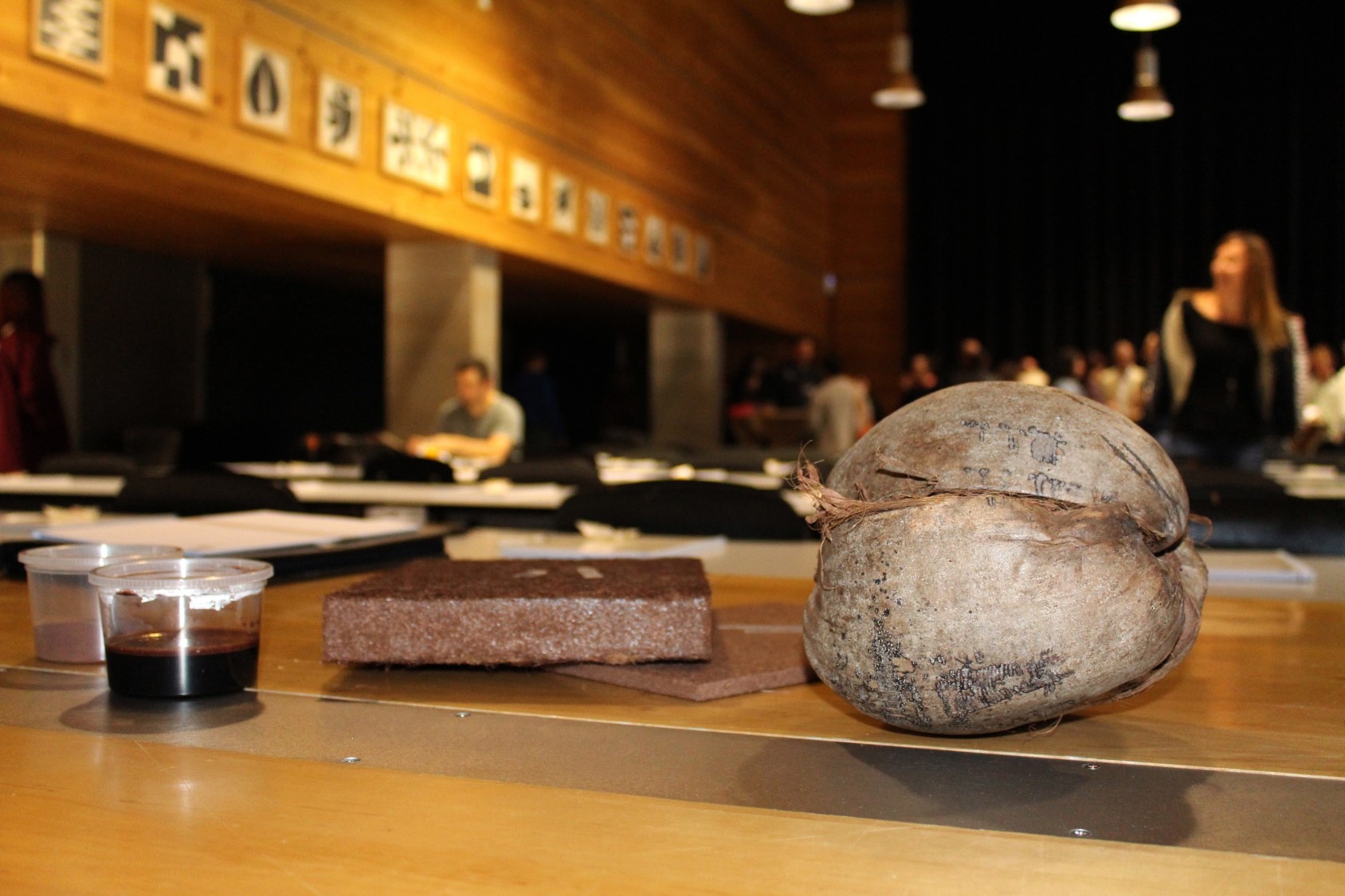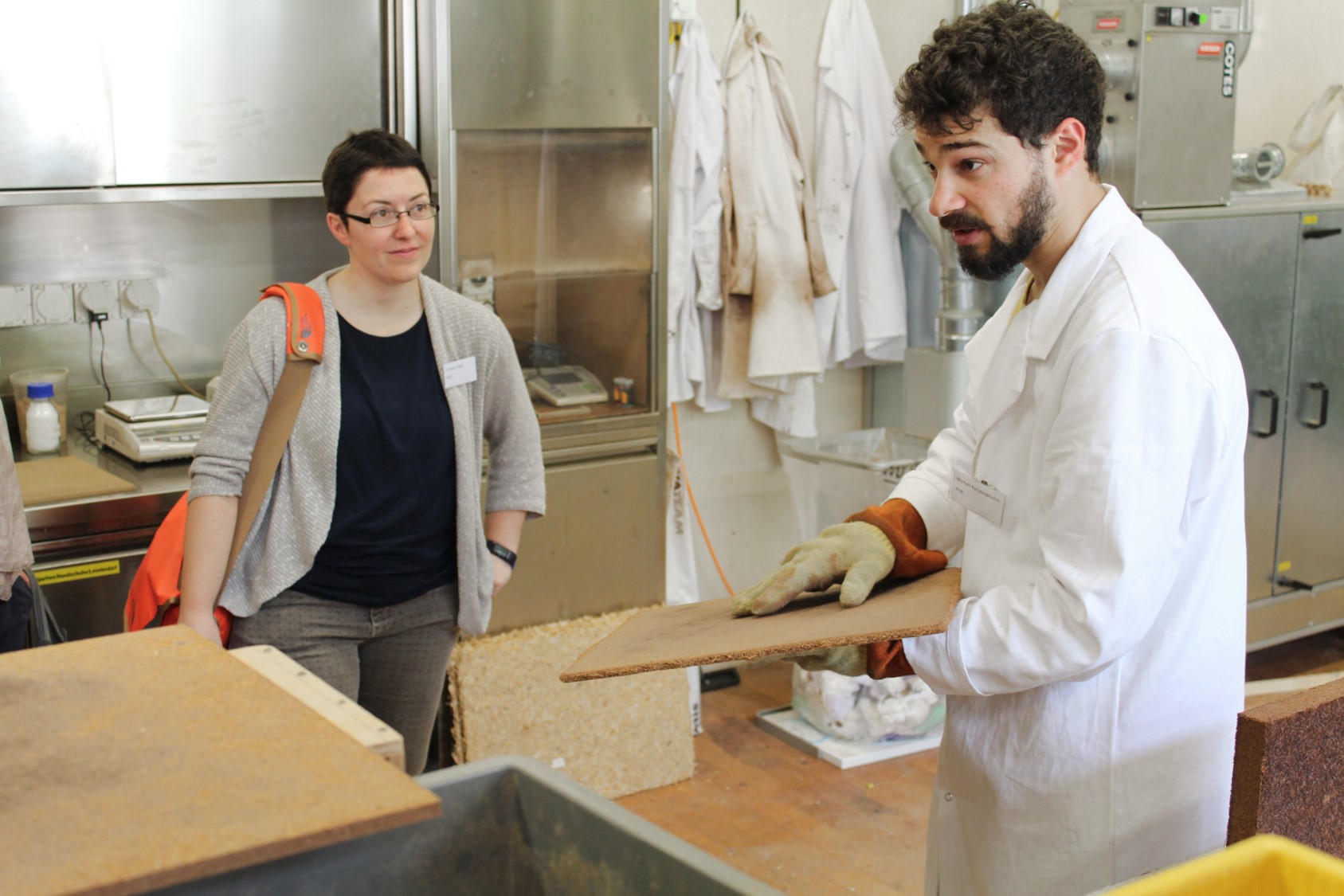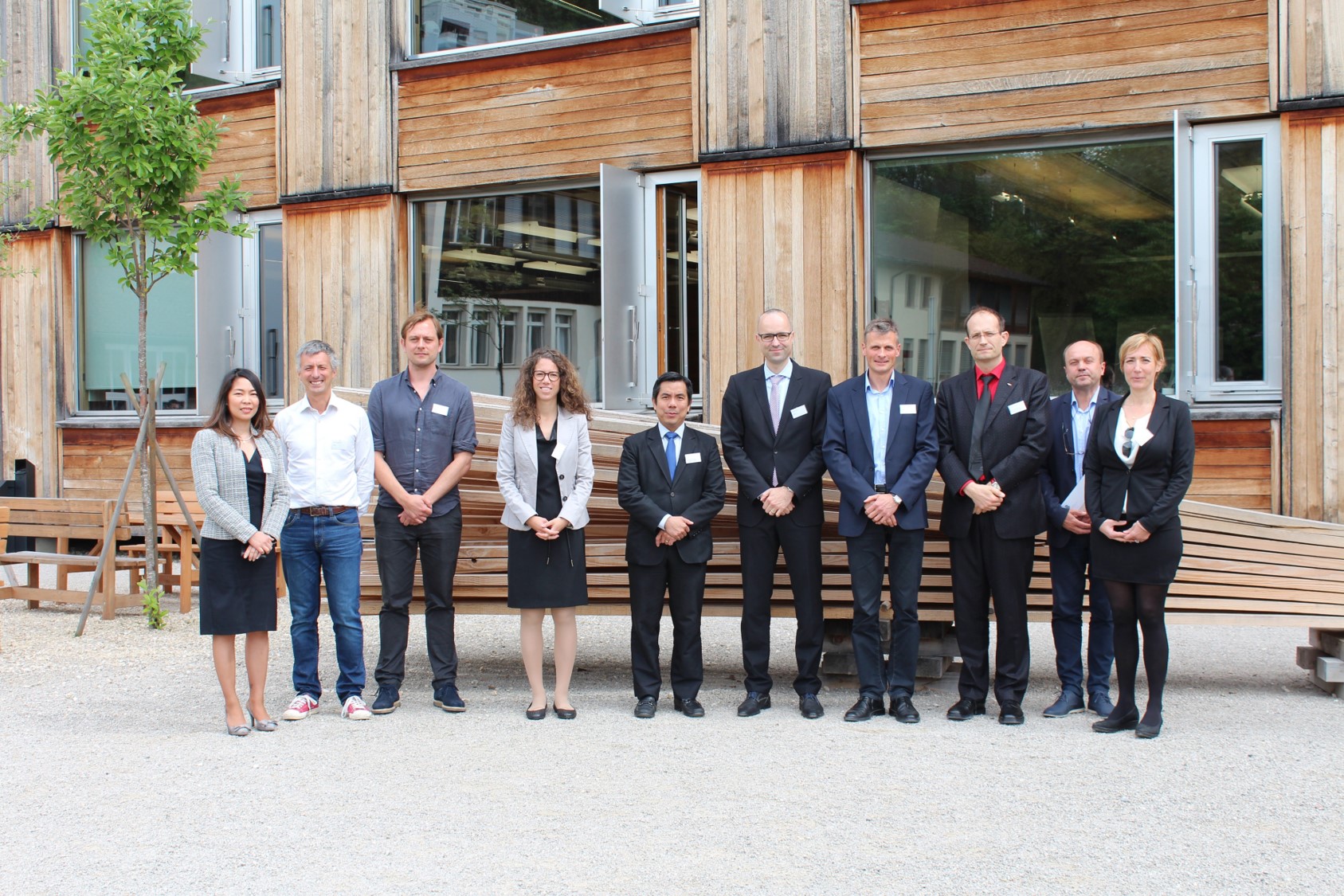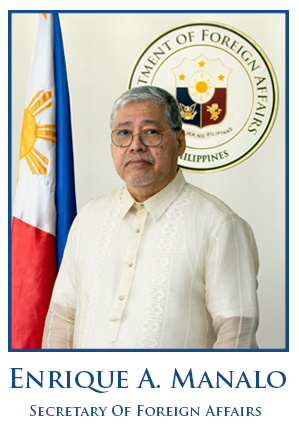The Philippine Embassy graced the project presentation in Switzerland of the Philippine Cocoboard held on 12 May 2017 at the Bern University of Applied Sciences’ Department of Architecture, Wood and Civil Engineering. The Cocoboard is an affordable building material made from coconut husks which are in abundance in the Philippines.
The Cocoboard project was motivated by the desire of Swiss researchers to help the Philippines in addressing the shortage of adequate living space, and the lack of locally made, affordable and durable construction materials which can resist recurring tropical storms.
Since 2014, shortly after the devastation of Typhoon Yolanda/Haiyan, Swiss researchers from the Bern University of Applied Sciences have been working with partner institutions in the Philippines to develop an environmentally friendly technology to produce ecological construction panels made of crop residue from the coconut harvest.
During its development phase, different types of Philippine coconuts were analyzed in the laboratory of the Bern University of Applied Sciences to select the suitable raw materials, mixing ratio, and design the pressing process for the Cocoboard.
The results were validated at the DOST’s Forest Product Research and Development Institute in the Philippines. In addition, the mechanical properties, biological resistance as well as fire resistance and thermal conductivity were determined on site. Some of the first Cocoboards were used in a reconstruction project carried near Tacloban.
During the presentation, the Embassy informed the researchers, students, funders and Swiss media present that the coconut is very close to the Filipino’s heart.
The Embassy said that the coconut is considered a “tree of life” by Filipinos, and that the Cocoboard project is a testament that there is indeed life even from the coconut’s waste product (coconut husk). With an annual production of 15 million tons of coconut, the Philippines is the second largest coconut producer worldwide after Indonesia. The research team said roughly 5 million tons of coconut husks are usually discarded or burnt after harvest.
The Cocoboard project is made more meaningful because the boards are intended to be used in housing projects to address the shortage of adequate living space, especially after the devastation of Typhoon Haiyan.
The Embassy also noted the great export potential of the Cocoboard, made entirely of coconut husks which can be sourced all over the Philippines. The Cocoboard was designed and tested using European standards and quality control systems. This means that the product was likewise tested under European conditions and climate, and may likewise be sold in Europe.
There is also a welcome novelty in the Cocoboard which addresses the world’s quest for environmentally friendly building materials.

The coconut husk (right), which is the main raw material for the Philippine Cocoboard (left).

A researcher from the Bern University of Applied Sciences demonstrate the fabricating and pressing technique for making the Cocoboard

Second Secretary and Consul Jarie Osias (center) pose with the Swiss research team which developed the Philippine Cocoboard
together with partner institutions in the Philippines.


